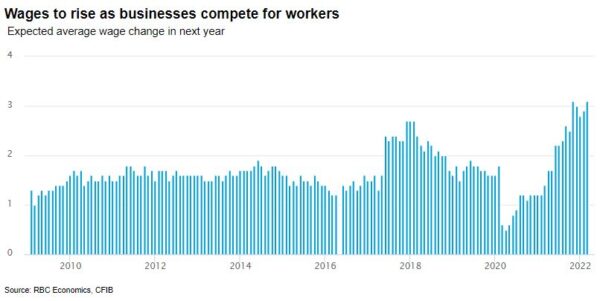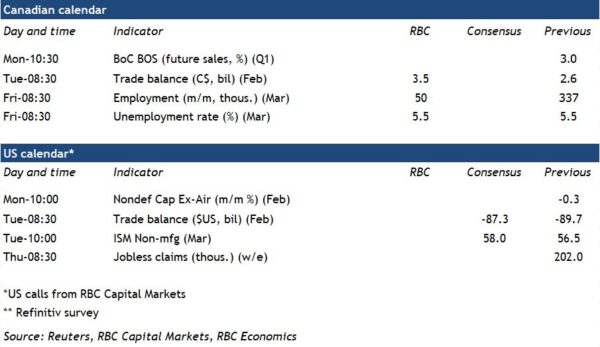With the Bank of Canada weighing how quickly to raise interest rates, all eyes will be on next week’s Business Outlook Survey (BOS) and the March Canadian jobs report.
We expect a 50,000 increase in employment. That’s a slowdown from February when employment surged 337,000 following a 200,000 drop in January—when Omicron prompted a range of restrictions and left a large share of the workforce sick and self-isolating. Job vacancy rates are still very high, particularly in the hospitality sector, where employment remains well below pre-pandemic levels. Despite the availability of jobs, at 5.5%, the unemployment rate is not just below pre-pandemic levels, it’s the second lowest monthly rate on record dating back to the early 1970s. That will both limit the pace of future employment growth and add to higher wage pressures as businesses compete for a smaller pool of available workers. We look for the unemployment rate to hold at 5.5% in March.
With inflation running above-target and labour markets looking exceptionally tight, interest rates are clearly poised to rise further—but the tone and commentary of the Bank of Canada surveys could offer hints about the pace and magnitude of those adjustments. The quarterly BOS will likely reinforce that production capacity limits, scarcity of labour, and rising input costs have become, for many businesses, more significant concerns than a lack of orders. Inflation expectations will be watched closely (both in the BOS and the separate Survey of Consumer Expectations) for signs that higher and more persistent price growth over the last year is becoming ingrained in longer-run expectations. Our own updated interest rate forecast assumes the BoC’s overnight rate will increase to 2.0% by the end of this year (from 0.5% currently) including an expected 50 bp hike in the next decision on April 13th.
Week ahead data watch:
- The Canadian merchandise trade balance likely moved higher in February from the $2.6 billion surplus in January. A 10% increase in oil prices will add to energy exports. And railcar shipments rose sharply in February after slowing in January.


